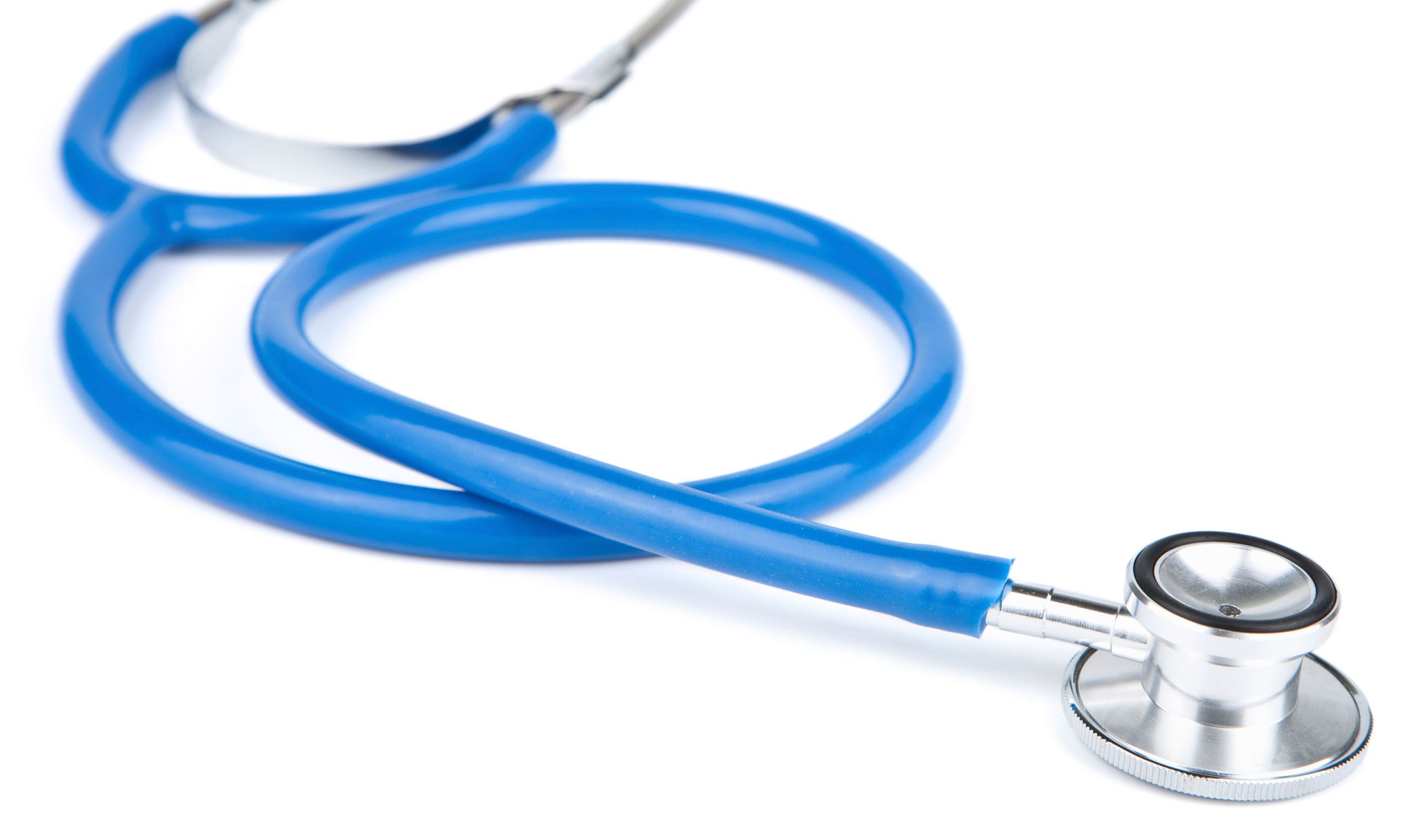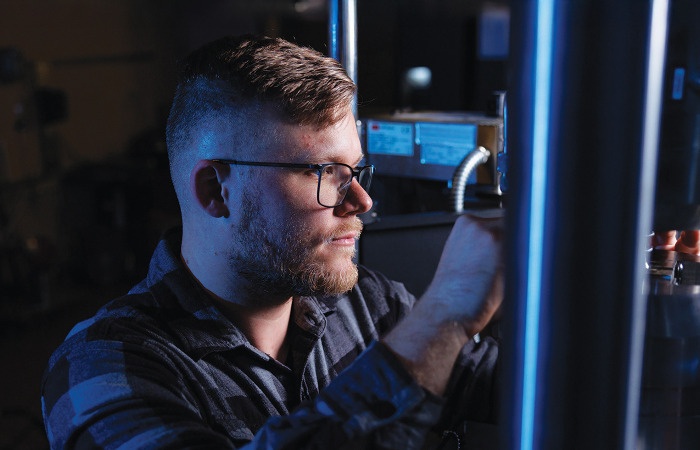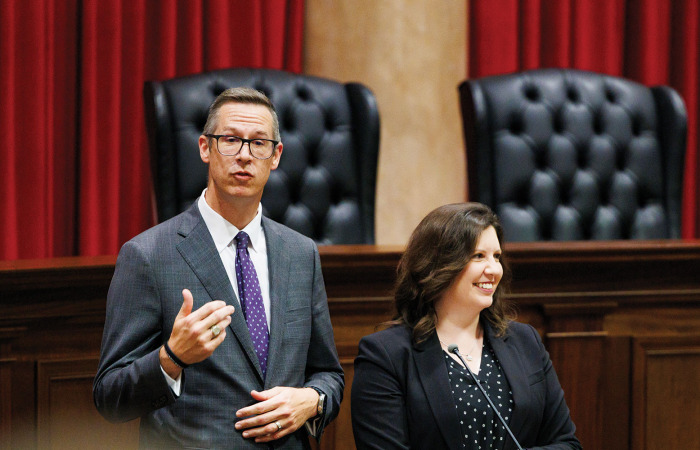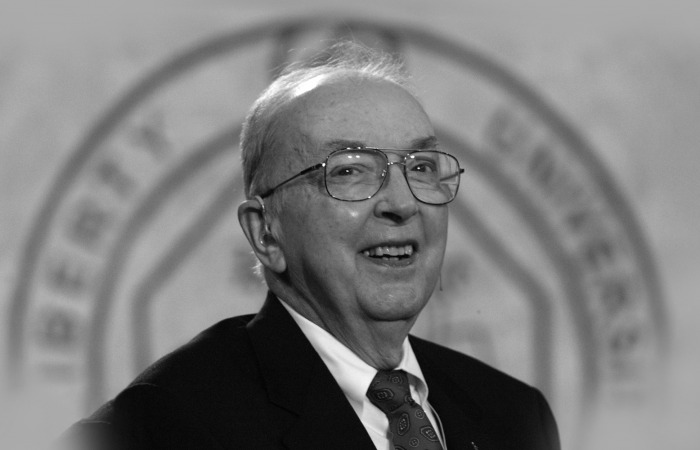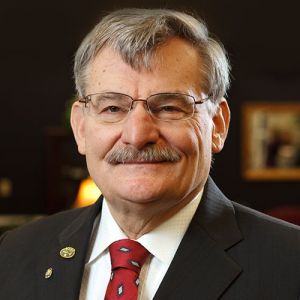
Dr. Ronnie Martin
Since his first full day at Liberty University in April, Dr. Ronnie Martin has been hard at work assembling a team of men and women who will make history at Liberty as they establish the new College of Osteopathic Medicine.
Plans for the medical school were announced last fall, when the Virginia Tobacco Commission approved a $12 million grant for a school of osteopathic medicine and an expanded health sciences school, to be built on a portion of campus in Campbell County.
Construction on a $40 million facility is set to begin this summer and expected to be completed in January 2014. The 105,000-square-foot building will be located near where U.S. 29 and U.S. 460 meet, close to Lynchburg Regional Airport. It will look down over the intramural fields on Campus East.
“We’re going to have a top-notch facility. When we get through, we will have a facility that rivals any medical school in the world,” said Martin.
Liberty’s medical school will become the sixth to be established in the state. Graduates will receive a D.O. (Doctor of Osteopathic Medicine).
“We have a responsibility to train our students so they are qualified to go into any specialty they want to enter,” Martin said. “We will try to influence them by the design of our curriculum, and the role models and mentors that we will put in front of them, to go into what we feel are the needed specialties for this country: primary care and preventative medicine, as well as ‘first point of contact’ specialties, such as general surgery or emergency medicine.”
Martin came to Liberty from the Edward Via College of Osteopathic Medicine (VCOM) in Blacksburg, Va., where he served as a professor, associate regional dean, associate dean for Clinical Education, and vice dean for Postgraduate Affairs. Liberty has had a longstanding, supportive relationship with VCOM and that will continue, Martin said.
Martin was a practicing physician for more than 20 years, serving as an emergency room doctor, a family physician, and a director of medical clinics.
Hiring Martin to lead the new venture was one of the first steps in an accreditation process that could take up to 36 months to complete. Liberty is seeking accreditation through the Commission on Osteopathic College Accreditation and the Southern Association of Colleges and Schools Commission on Colleges.
Martin said if the accreditation moves ahead on schedule and permission is granted by the agencies, the school can begin to recruit students in the fall of 2013, with plans to enroll 150 students each year.
The establishment of a medical school at Liberty comes at the right time, he said, calling the need for health services and physicians in the state, especially in the Southside, “tremendous.”
He said 67 percent of the Health Professional Shortage Areas (HPSA) of the Southside region are underserved, “many in crisis.” (Areas are considered HPSAs when there is less than one physician for every 3,500 patients).
“We know that physicians are more likely to practice where they train, yet Virginia has less than 40 percent of its medical school graduates who remain in the state,” he said.
The Virginia Department of Health has predicted a 1,500-2,700 physician shortage by 2025. Additionally, nearly one-third of Virginia physicians are over age 55 and will be looking at retirement when Liberty’s first students graduate from residency, “a compounding factor that along with the aging population magnifies the need,” Martin added.
He said he hopes to have senior administration and leadership in place by this summer. Plans call for more than 40 full-time faculty, about 40 additional staff, and about three dozen part-time professionals. In addition, the college will recruit, hire, and credential more than 500 adjunct clinical faculty members. Faculty positions are being advertised through professional and communication organizations.
“Even before advertising, we’ve had a significant number of people interested in joining Liberty here and being a part of this project since it was announced,” Martin said.
He added that Liberty will offer opportunities for many of its current faculty and staff to engage with the new college.
The new medical school will no doubt have a positive economic impact on the region and state.
“Considering the total cost of attendance at the medical school, the impact on funds spent on housing, food, child care, tuition, faculty and staff salaries, the College of Osteopathic Medicine alone, when fully developed, will have approximately a $40 million-a-year impact on the Lynchburg region,” Martin said.
Each graduate of the college who chooses to practice in Southern Virginia represents a $1.2 to $2 million-a-year impact on their chosen town, he added.
Liberty will offer medical students who live in areas that qualify for tobacco indemnification a tuition discount as part of its agreement with the tobacco commission.
Martin has also been busy seeking collaborative and cooperative partnerships with area health care agencies, institutions, professionalorganizations,andindividual professionals to provide student and resident training. He recently attended his first major meeting with Centra Health and is seeking partnerships across Virginia, but with a concentration on Southern and Central Virginia.
“We want to train students in these regions so they will remain here to practice,” he said. “In addition, we hope to develop partnerships with others across the U.S. and globally that will help us develop our outreach and missionary opportunities for our students, many of whom will be attracted to Liberty because of its long tradition of service to those in need.”
Liberty requires Christian/Community Service hours of all its students, and the medical school will be no different. Students will have many opportunities to participate in medical missions at home and abroad.
“It may be in Allegheny (Va.), it may be in South Africa, but all of our students will have service requirements,” he said.
Martin said people are recruited into medical school because of their service mentality.
“They are people who want to take care of people, yet in the traditional medical school they don’t do enough to nurture those virtues, so it’s very easy to beat that out of them with the demand of a medical education. … If you put them in service opportunities, you reinforce those great traits you are recruiting,” he said.
Martin has done many overseas missions projectsandalsotravelstoChinatotrain medical school faculty each year. He is one of the few American physicians who has been granted a license to practice in China. Martin said the mission of Liberty is consistent with his philosophy.
“When people ask me what it takes to be a great physician, I tell them it takes a servant’s heart,” he said. “If you’re not really interested in serving other people and improving the lives of other people … you can (still) be a good doctor — doctors are keepers of knowledge, (but) physicians are healers of people. There’s a big difference between the two. We never hear Jesus Christ referred to as the great doctor, you hear him referred to as the Great Physician, because he healed people and healing people means you have to be involved in their body, mind, and spirit.
“That’s really going to be our philosophy here,” he continued. “We are very interested in training young men and women to become physicians who are healers of people and that’s so much more than treatment of disease. We will nurture that servant’s heart that brought them into medicine in the first place.”
Martin is relocating to Lynchburg with his wife, Sherri. They have three children who are all involved in osteopathic medicine. Two daughters are osteopathic physicians and their son is the director of government relations for the American Osteopathic Association (AOA). Sherri is the national president for advocates to the AOA.
